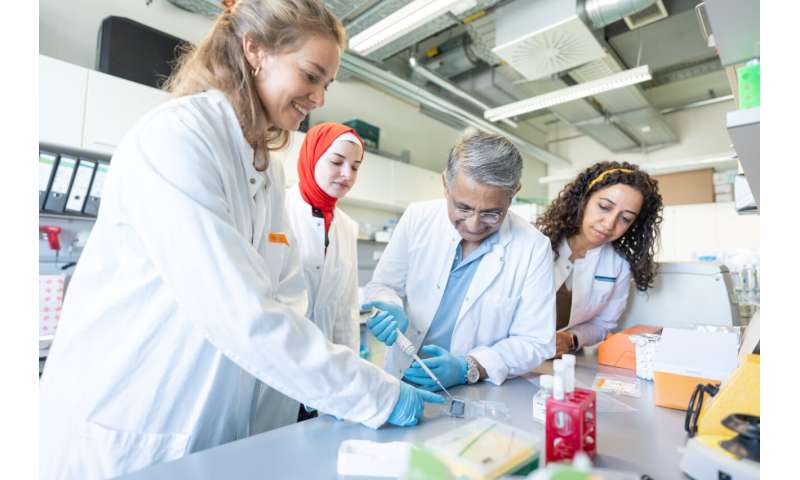Cancer center launches development cooperation to provide children worldwide with modern cancer diagnostics

Worldwide, 40% of all children with cancer die from their disease. In countries like Germany, which are among the global leaders in health care, 20% of all children with cancer do not survive their disease.
"Particularly in low-income countries, there is a lack of resources for training experts, for example specialized pathologists, and thus a lack of precise diagnostics to successfully treat children and adolescents," emphasizes Stefan Pfister, director at the Hopp Children's Cancer Center Heidelberg (KiTZ), department head at the German Cancer Research Center (DKFZ) and pediatric oncologist at Heidelberg University Hospital (UKHD).
"Cancers in children are very diverse and therefore respond quite differently to radiation and chemotherapy. Classifying the tumors as precisely as possible is therefore quite crucial for effective treatment," he continues.
Under his leadership, the institutions KiTZ, DKFZ and UKHD have now launched the consortium "MNP Outreach" (Global Outreach Study of Methylation Classification Tools for CNS Tumors and Sarcomas) to help low-income and developing countries establish modern molecular cancer diagnostics for children and adolescents in their country.
Partner countries to date include Jordan, Pakistan, India, Indonesia, Thailand, Chile, Argentina, Brazil and the African nations of Egypt and South Africa. Another partner is Qatar, which already operates its own methylation analysis service and has joined to optimize the interpretation and use of these molecular data for treatment decisions.
As part of the program, scientists from these countries have been receiving targeted training in Heidelberg, as well as laboratory equipment and the necessary analysis software to enable them to use a modern molecular diagnostic procedure developed in Heidelberg.
The organization BILD hilft e.V. "Ein Herz für Kinder" (A Heart for Children) is subsidizing the cooperation with the partner countries over the next five years to allow the training of physicians and laboratory staff.
The partner countries of the consortium are to be enabled to establish all steps of diagnostics, from the preparation of tumor samples to data analysis and their interpretation in their own laboratories, as far as possible free of charge for their young patients. The costs for further consumables, additional salaries, travel expenses and training are largely covered by the consortium.
"Our partners also receive, for example, a particularly inexpensive software solution for the methylation analyses, which the Heidelberg team developed themselves in the academic environment," explains Olfat Ahmad, project coordinator of the consortium at KiTZ, who is also affiliated with the King Hussein Cancer Center (KHCC) in Amman, Jordan.
"Contributing to the establishment of modern cancer diagnostics with methylation analysis in the Arab world, together with cooperation partners from Asia, Africa and South America so that as many children and adolescents as possible can benefit from this new technology, is extremely motivating for me."
The special diagnostic procedure is a new AI-based method that the team, led by scientists David Jones, Felix Sahm, Andreas von Deimling and Stefan Pfister from KiTZ, DKFZ and UKHD, first published in the journal Nature in 2018 and made available worldwide. The algorithm, which is accessible on the "Molecular Neuropathology" website, evaluates so-called DNA methylations in the genetic material of the tumor. This makes it possible to distinguish between tumors and classify them reliably.
Methylation patterns have now also been widely used in the World Health Organization (WHO) classifications of childhood tumors. Since going online, more than 120,000 tumor profiles of patients from over 40 countries have been analyzed by "Molecular Neuropathology" for research purposes. With the corresponding software, the partner countries can now also use the algorithm directly on site for therapy decisions.
"Methylation analysis can significantly improve treatment decisions so that more children and young people survive their cancer. We see the program as a very important step towards ensuring that children with cancer all over the world have an equal chance of being cured," says Stefan Pfister.
Provided by German Cancer Research Center